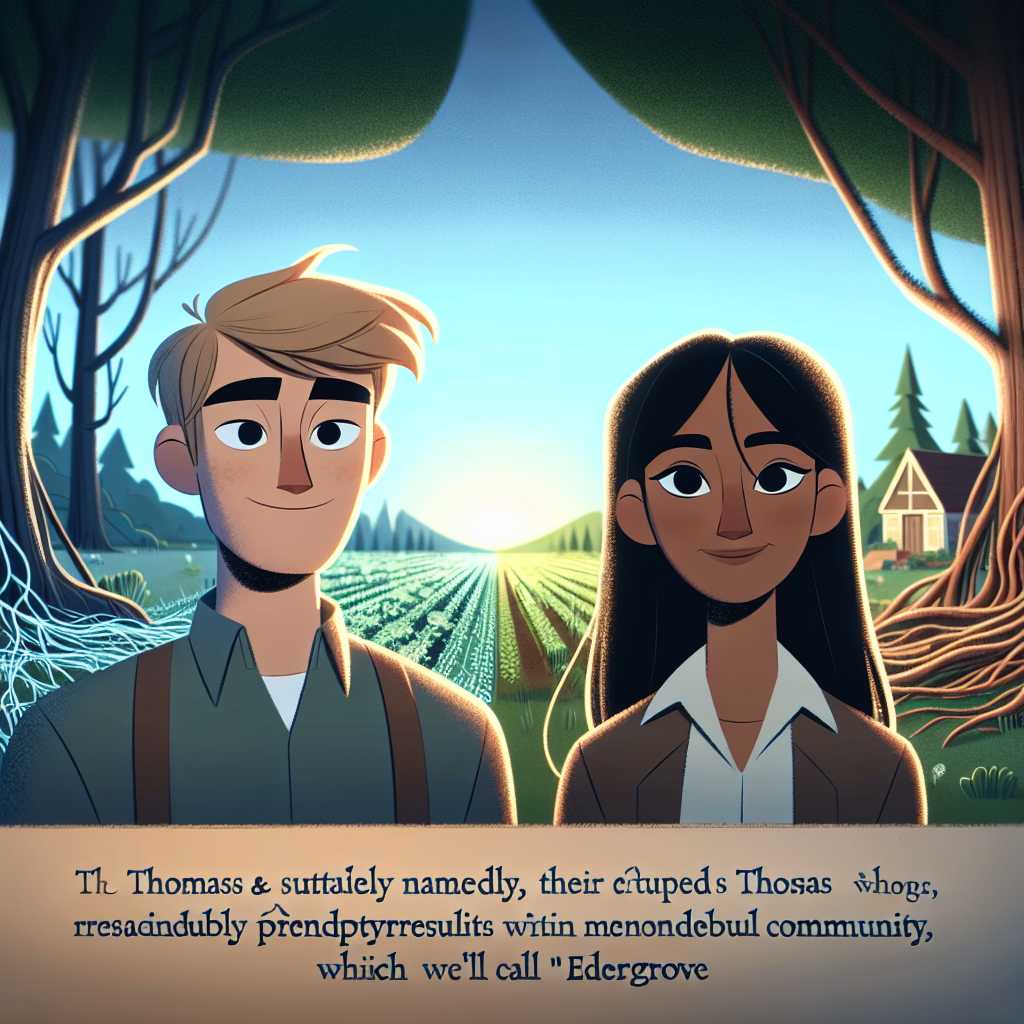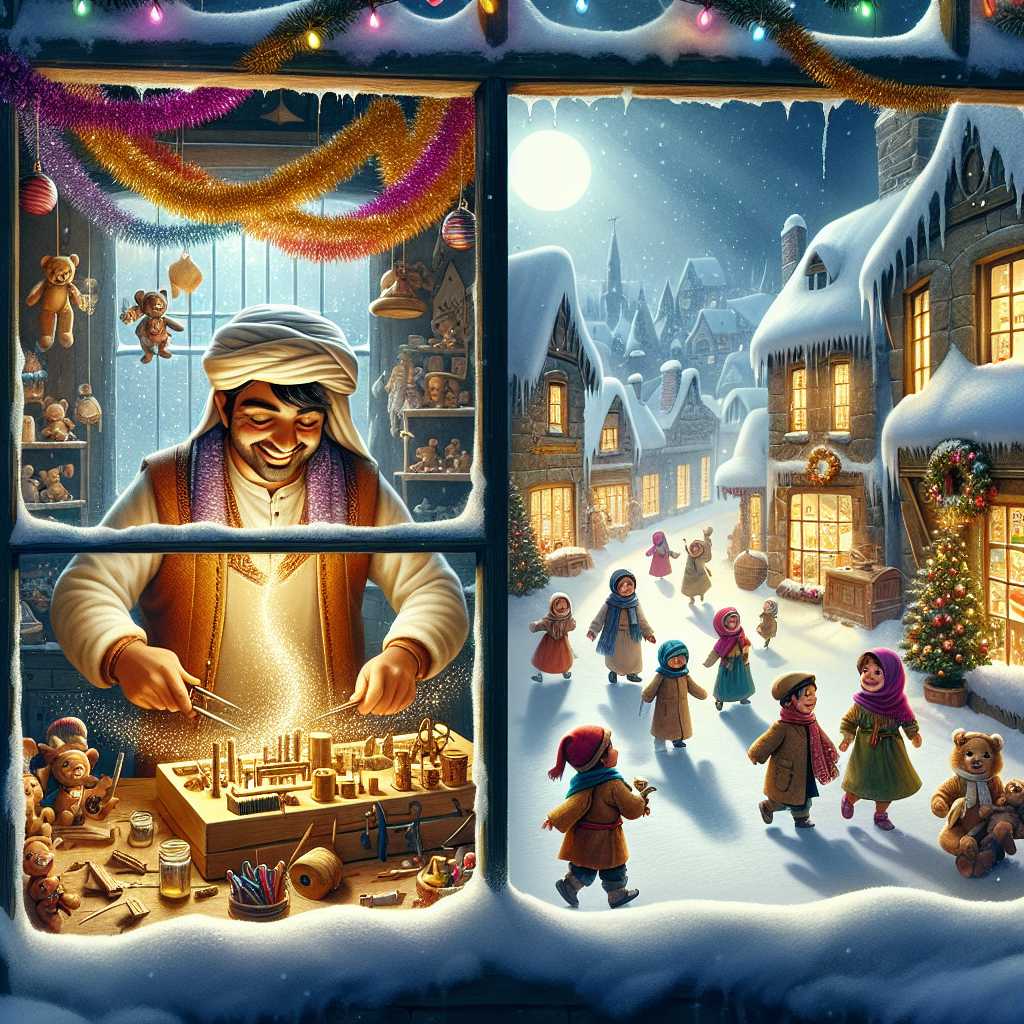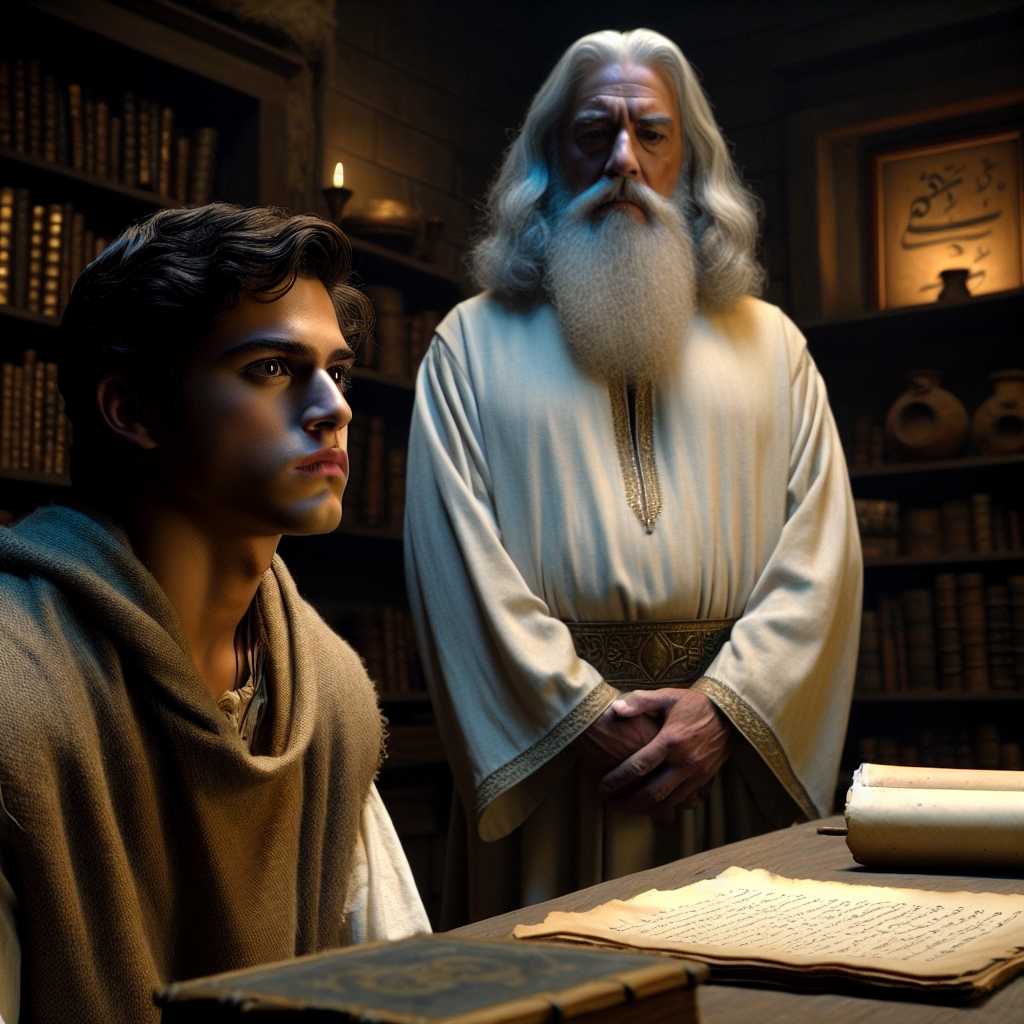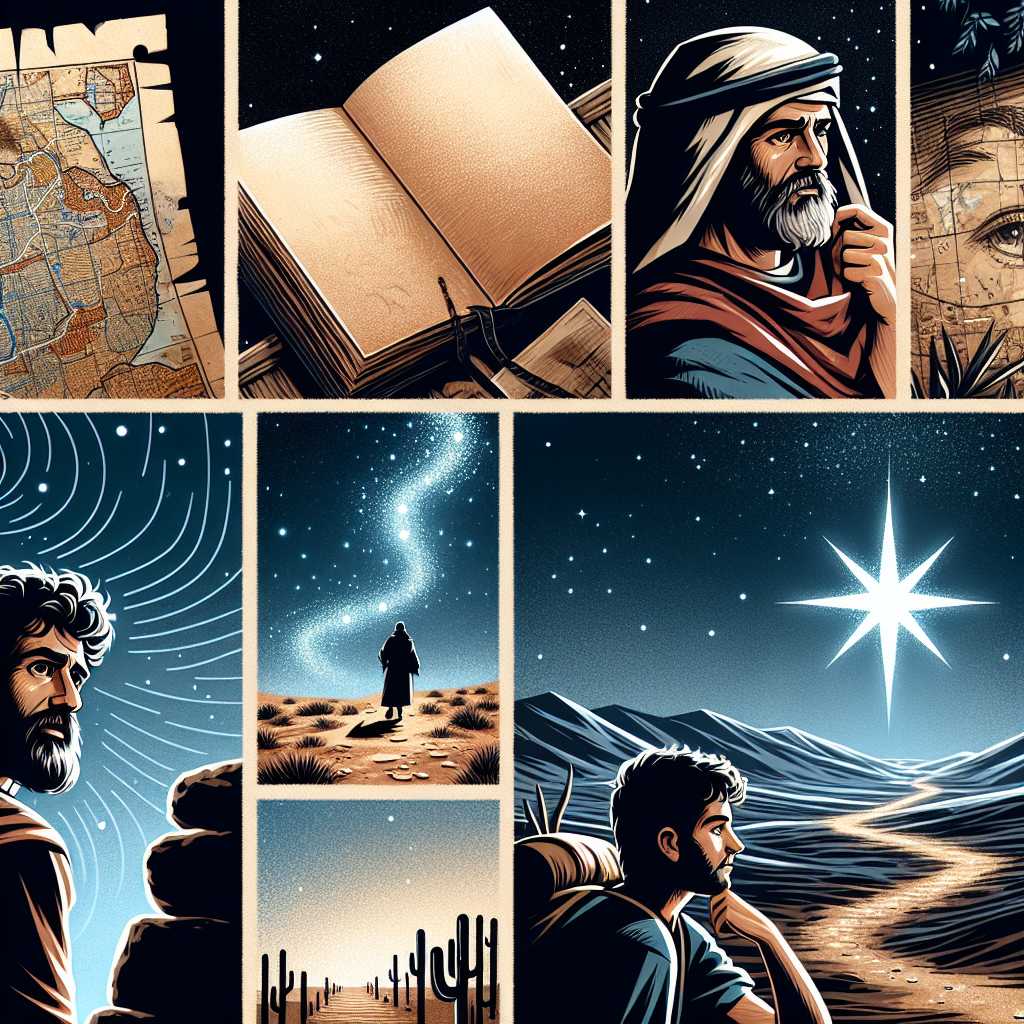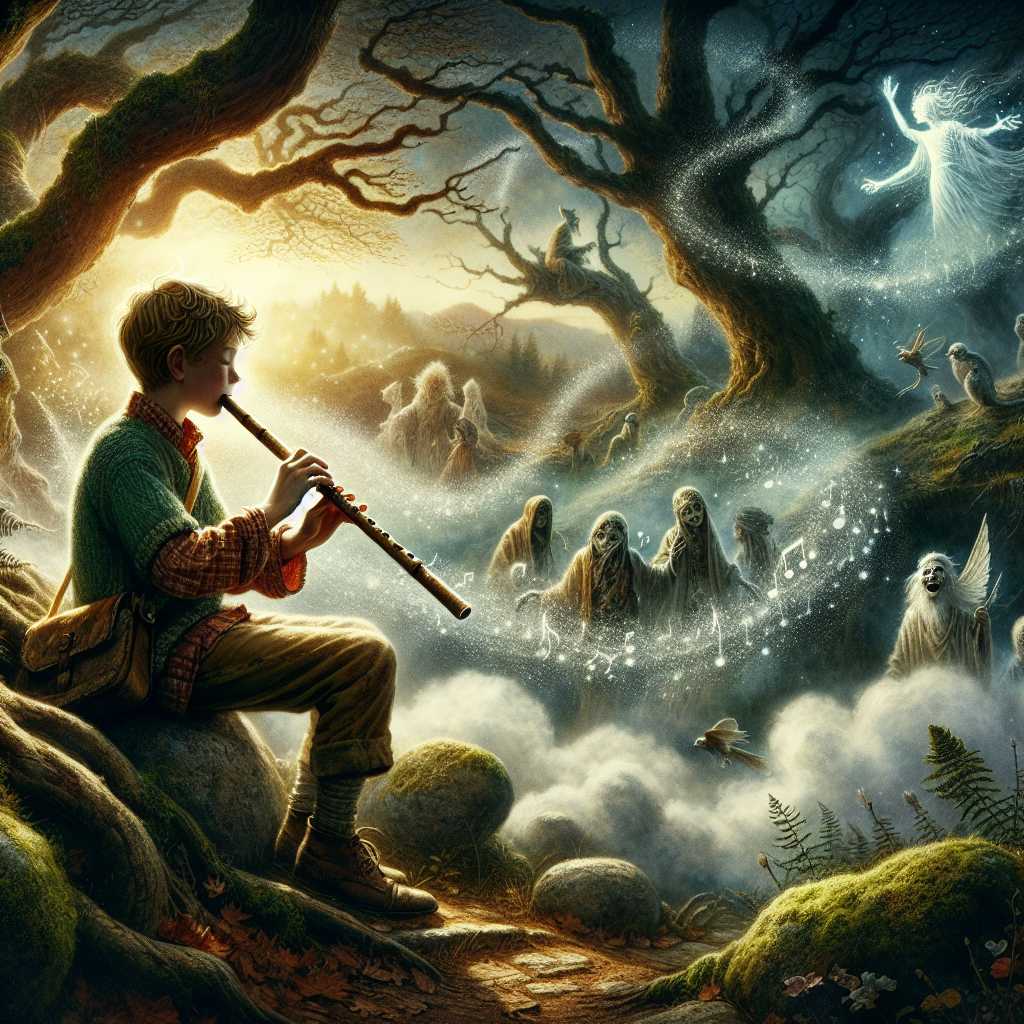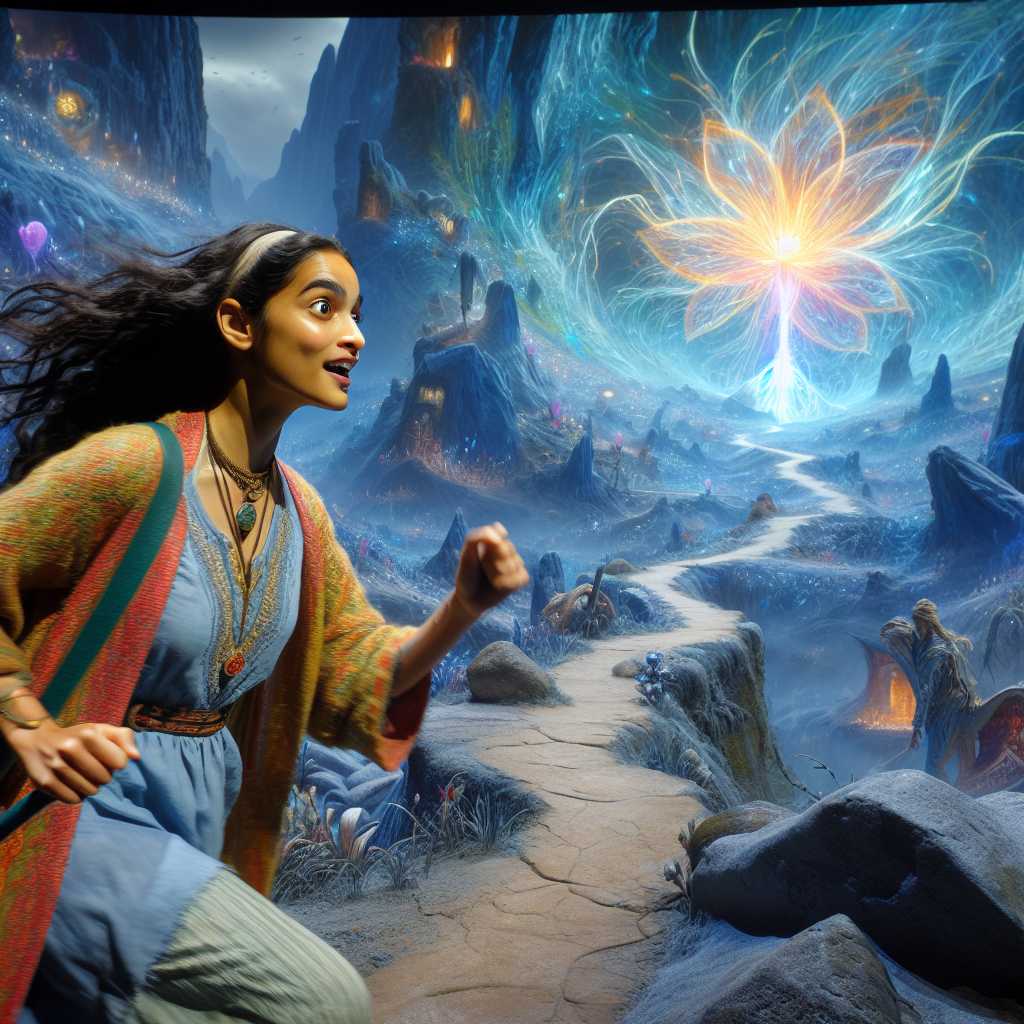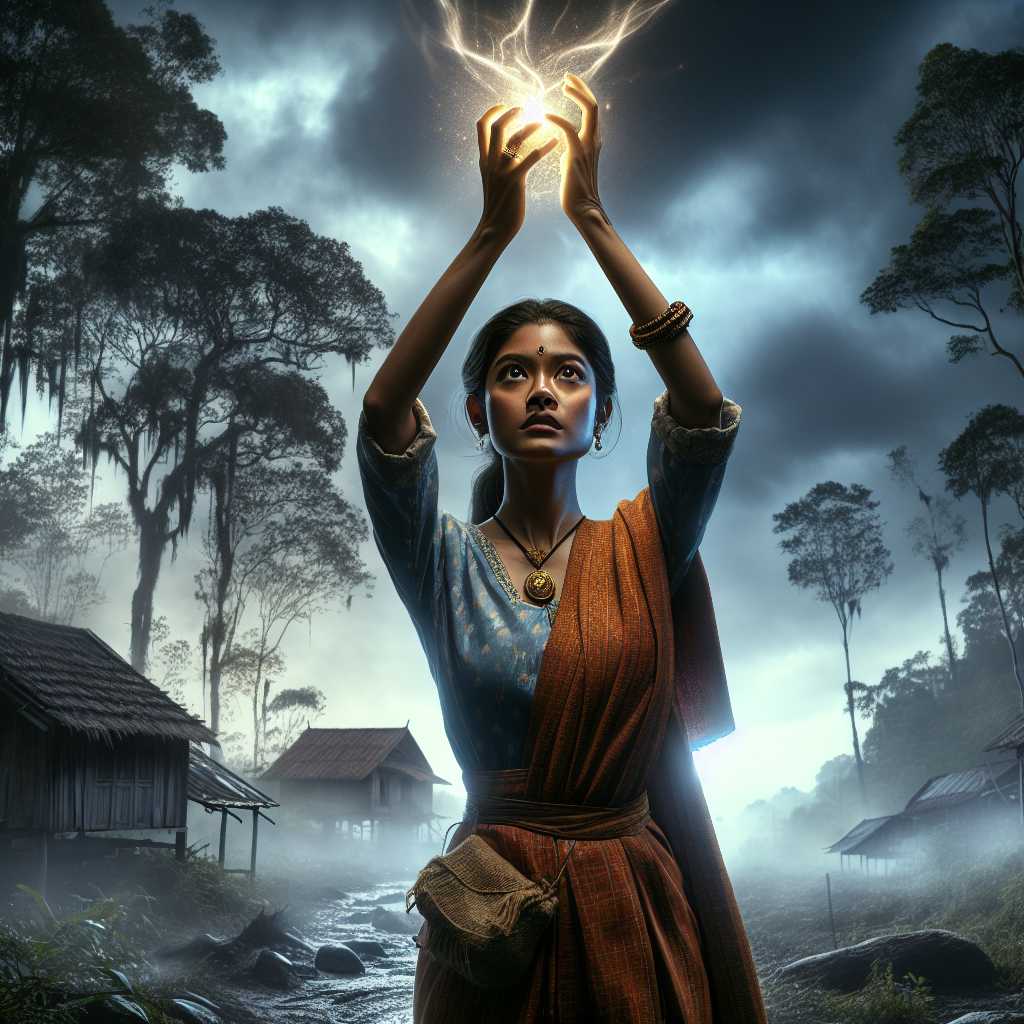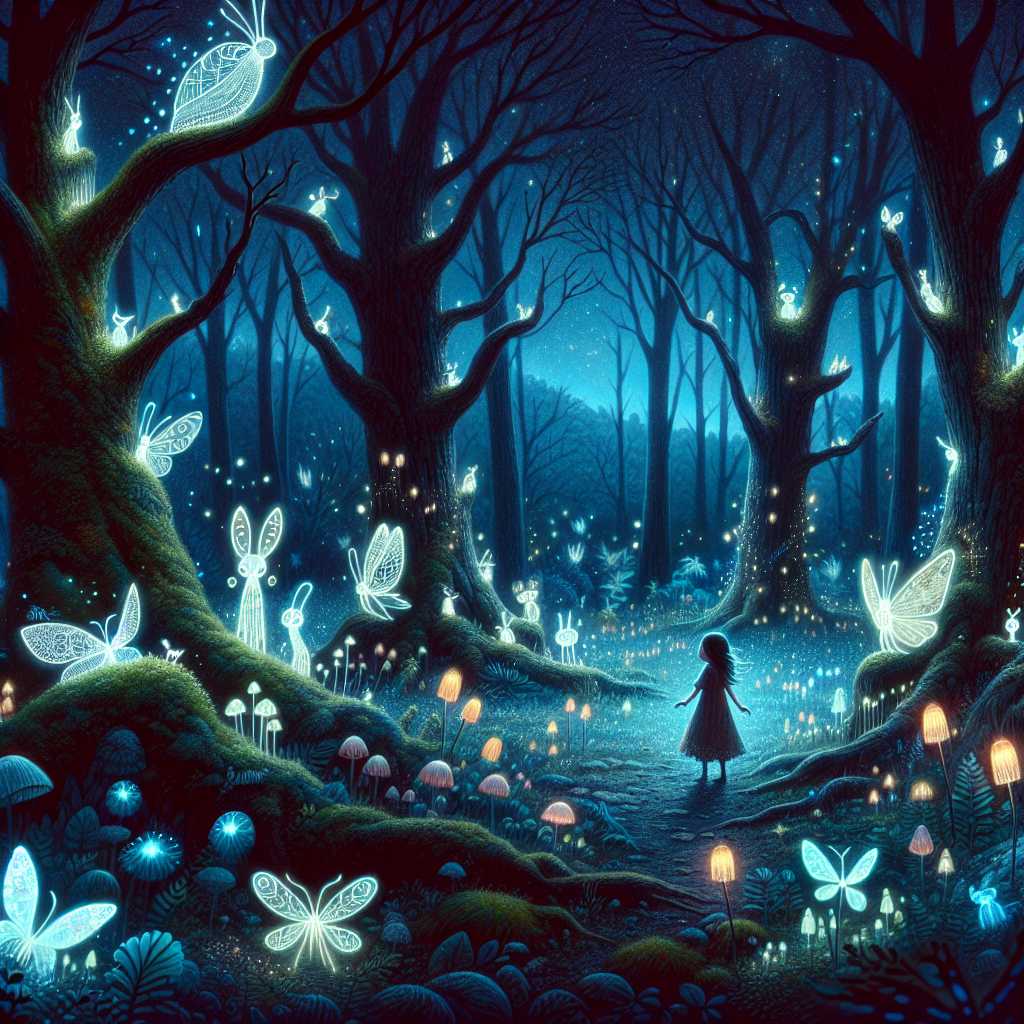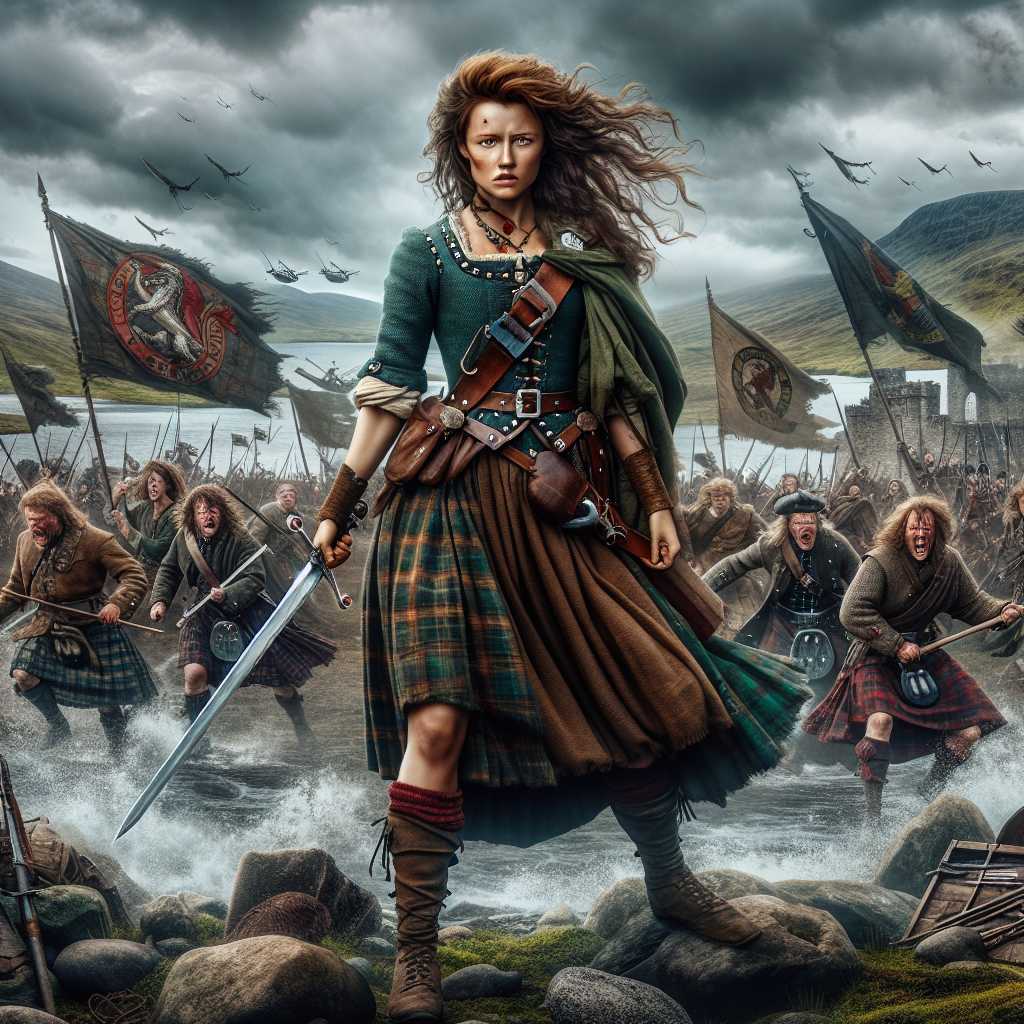
It began in the year of our Lord seventeen hundred and forty-five, when the winds of the Uprising did spread like a wildfire through the ardent hearts of Scottish men. Amongst them stood Eleanor, Daughter of the Clan MacCrae, fair of face with hair like the burnished autumn leaves, and eyes that mirrored the stormy grey of the Highlands' sky. Eleanor was spirited and young, scarce seventeen summers to her name, and though she be but a lass, her soul was forged of the same steel as the claymores wielded by her kin.
In the shadow of the mighty mountains, where the heather grew wild and free, the MacCraes’ ancient keep loomed—stone upon stone, holding within its walls the pulsing life of its people. It was whispered that Eleanor held the gift of the Sight, a power rare and revered, passed down to her through a lineage of wise women. With this blessing—or curse, some would say—she glimpsed snatches of the future, visions that danced before her eyes, shrouded in mist.
"Mother,” Eleanor whispered one fateful night as the hearth fire crackled and spat, “the drums of war beat with haste. I see a lion rampant, bloodstains upon its mane, but 'tis not clear who shall wear the crimson sorrow." Her mother, Isobel, with her wisdom etched in the lines of her face, knew that grim times were upon them, as the Jacobites sought to reclaim the throne for Bonnie Prince Charlie, the young pretender.
“Daughter, our clan must take heed,” warned Isobel, her words heavy with the burden of knowledge. “Your sight must guide the MacCrae. You must go to your father.”
So it was upon a dawn, when the sky blushed like a maiden’s cheek and the dew lay upon the thistle, that Eleanor sought her father, Duncan, Laird of MacCrae. In the Great Hall, the air was thick with the scent of peat smoke and the subdued tones of men at counsel. Duncan, with his bear-like frame and fierce gaze, was a leader born of the rugged land itself.
“Father,” began Eleanor, her voice a clear bell among the murmurs, “I come bearing a vision of a field soaked in blood, where the thistle’s pride lies trampled. There must be caution in pledging our swords.”
All eyes turned to the young seeress, a shared breath held tight in their chests. “Eleanor, my heart,” spoke Duncan, tempered by a father’s love and a chieftain’s resolve, “thy concern weighs upon me. Yet, can we stand by whilst the call to arms rings clear for Clan and Prince? Shall the MacCrae name be marred by hesitance?”
Eleanor, bold in the face of her father’s ire and the skeptical eyes of his war-chiefs, stood tall. She armed herself with conviction, declaring, “Tis not hesitance, but foresight. We must stand, aye, yet not rush to our dooms. Let us not fall prey to fate, but meet it as the stag meets the hunter—with guile and swift hoof.”
The laird gazed upon his daughter. In her eyes, he saw the fierce flame of her ancestors, spirit warriors who had safeguarded their people with wisdom and sword. “Then, so be it. Eleanor’s vision be our guide; we shall prepare, though patience shall hold our blades within their sheaths for now."
The days that followed stirred with clandestine meetings and whispered strategy. Eleanor’s words sparked a cunning in Duncan, who resolved to forge an alliance with neighboring clans, taking counsel from his daughter’s foresight.
Yet visions are a treacherous terrain, and Eleanor’s gift was a path laden with thorns of doubt and fear. Time and again, she cloistered herself in the ancient chamber, seeking clarity among runes and relics of old.
One chill morn, Eleanor awoke with a heart thundering against her ribs. Before her mind’s eye unfurled a tapestry of destiny, of steel and fire, of a great victory shadowed by desolation. “There will be triumph,” she whispered to the dawn, “Followed by a tempest that will rend us to the bone.”
With grim certainty, she knew that her visions forged a weapon itself—a weapon that could wield victory or invite defeat upon her clan. She must choose the moment with care, for the threads of fate were a tangled skein.
Thus, when the clans gathered upon the moor, ready to march to glory or to death, Eleanor took her place beside her father. As they made camp upon Drumossie Moor, where the battle would unfold, Eleanor beseeched the heavens for a sign.
It came in the form of an eagle, majestic against the twilight. “The sign,” Eleanor declared, “We must alter our stance, take the higher ground whilst it remains ours! For the eagle soars above the storm, and from such heights, it sees all.”
Duncan, trusting his blood and bond, commanded the men. With quick action, they secured the advantageous terrain, changing the flow of battle even before it had begun.
And so it transpired, as fire met steel, and the haunting skirl of the bagpipes pierced the clamor of war, the battle raged. Eleanor’s vision bore fruit—the MacCraes prevailed, but the cost was steep. They grieved for lost brothers yet stood proud.
The Uprising was eventually crushed, yet the MacCraes remained, their spirit unbroken, their legend immortalized. Eleanor’s visions had saved many, though it changed her too, carving a destiny none could foresee. She became known as the Oracle of the Highlands, her tale woven into the tapestry of the land’s lore.
In the annals of time, the story of Eleanor of the Highlands endures, a testament to the power of foresight and the unyielding spirit of a clan. As story-tellers through the ages recount her saga, let it be known that history is but a shadow, and within its depths, the echo of legend remains ever alive.



